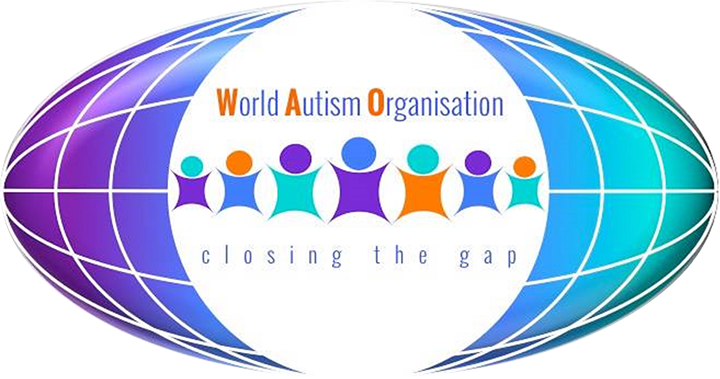
ESPA RESEARCH
“Improving quality of life for people with autism spectrum & related conditions through the production of high quality published research”.
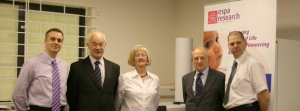
ESPA Research is a wholly owned subsidiary of ESPA Ltd. (Education & Services for people with Autism). We previously operated within the University of Sunderland as the Autism Research Unit (ARU), transferring to ESPA in October 2009. ESPA Research is based in Sunderland in the North-East of England. We have a research laboratory at the Business & Innovation Centre (BIC) in Sunderland.
ESPA Research Staff include Kevin Carr, Lynda Todd & Paul Whiteley. Karl Hardy from ESPA is our Company Secretary. Professor Malcolm Hooper is a director & advisor in his capacity of Emeritus Professor of Medicinal Chemistry working with Paul Shattock (Chairman of ESPA). Each of our associates brings different skills to our work focused in areas of psychology, chemistry & health care.
We have also appointed a new non-executive director Madeleine Portwood, an Educational Psychologist specialising in various neurodevelopmental conditions including autism spectrum conditions.
Our primary research interests include:
- The analysis of biological samples from people with autism & related conditions to seek chemical entities that could provide insight into any underlying metabolic abnormalities and/or predict best or non-responders to specific interventions.
- The application of a health informatics approach to autism & related conditions.
- Examinations on the potential effectiveness of gluten and/or casein free (GFCF) diets for the alleviation of some of the symptoms of autism.
Our multi-disciplinary approach utilises some of the gold standard equipment & techniques. This includes several mass spectrometers used for our biochemical analytical work which form a central role in our various investigations. Our equipment is supported by years of education, qualifications & expertise.
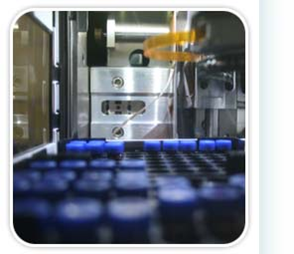
The majority of our funding comes from charitable sources (donations from trusts or individuals) but we also rely upon donations from commercial activities with which we are associated. None of our funding comes from large companies or Government grant making agencies. As a result, we are able to conduct research which may not have immediate commercial relevance but which we feel will have the maximum possible impact in terms of relevance & clinical or social benefit.
Our various research topics can be provocative, but are carefully designed & performed to be both ethical & scientifically accurate. We follow wherever the science leads us. We believe that our operation is unique in combining all these elements.
We have a number of research projects on going at the present time:
The ScanBrit Project.
This collaborative project started over 10 years ago with the express intent to offer experimental evidence on whether a gluten & casein free (GFCF) diet was able to positively affect the behavioural presentation of autism in children. Working with partners in Denmark & Norway, our initial results, based on 2 years following children on & off a GFCF diet suggested that a proportion of children on the autism spectrum may benefit from dietary intervention.
Research on the accumulated ScanBrit data also continues with other investigations underway examining the reasons why some children are “good responders” to diet whilst others are not. This work is complemented by biochemical research looking at urine samples taken over the course of the ScanBrit study. Such work (called metabolomics) aims to predict who might be a dietary best responder on the basis of the patterns of urine compounds present in their samples.
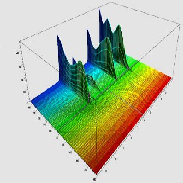
The effect of colour therapy for autism.
Sensory issues are well known to occur alongside autism spectrum conditions. Issues with vision & the perception of vision have been detailed. Working with expert collaborators, we are examining whether the use of coloured lenses/glasses could be indicated for some people with autism & whether such intervention produces any corresponding detectable biological changes.
Developing new ways of administering medicines to people with autism.
Taking medicines by mouth can often be problematic for some people with autism leading to potentially serious issues with medicine doses. In conjunction with local academic partners, ESPA Research has been involved in a pilot project looking at the formulation of medications often used in autism into skin patches & creams for easy & extended release. Our research is currently focused on the anti-opiate drug, naltrexone shown to have some positive effects in cases of autism, & its formulation it into a skin cream. Our initial work, which looked only at artificial models of skin & how naltrexone passes through the skin, has revealed some interesting results. Future studies are under discussion related to the formulation of other medicines into this less invasive form of administration.
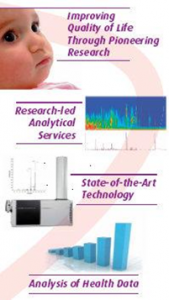
The effects of employment on people with autism
This is an on-going investigation to examine the effects of employment on adults with autism. We aim to look at how employment affects people with autism & whether there are ways or strategies that potentially could help further enable people with autism to enter employment & receive all the benefits that accompany it.
Vitamin D & autism
Initial discussions are under way to collaborate with physicians in the Middle East to examine functional levels of Vitamin D (D2 & D3) & their body metabolites in two distinct groups of children diagnosed with an autism spectrum condition based in differing geographic locations.
Alongside our research duties, ESPA Research has successfully become a stakeholder in the development of autism guidance in the UK being undertaken by The National Institute for Health & Clinical Excellence (NICE). Members of ESPA Research have spoken at numerous conferences throughout the world. They have been involved in reviewing various guidance on the use of interventions for autism, as well as providing expert research review for various lay & professional publications & academic review for various institutions.
